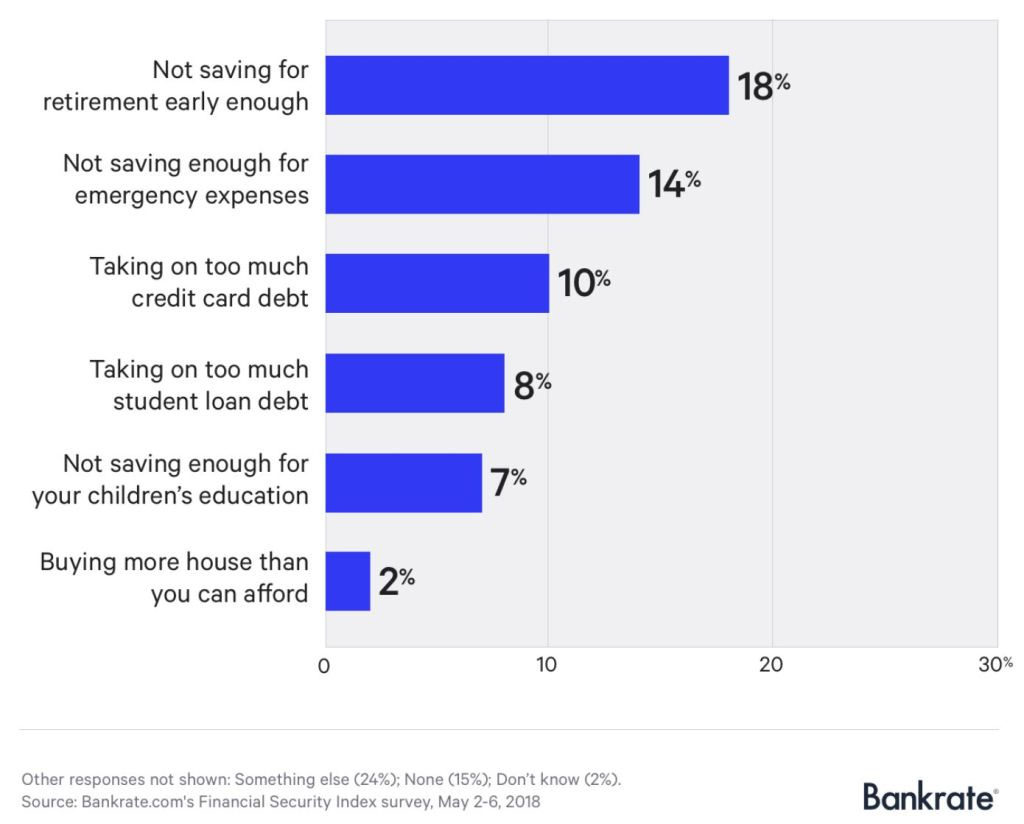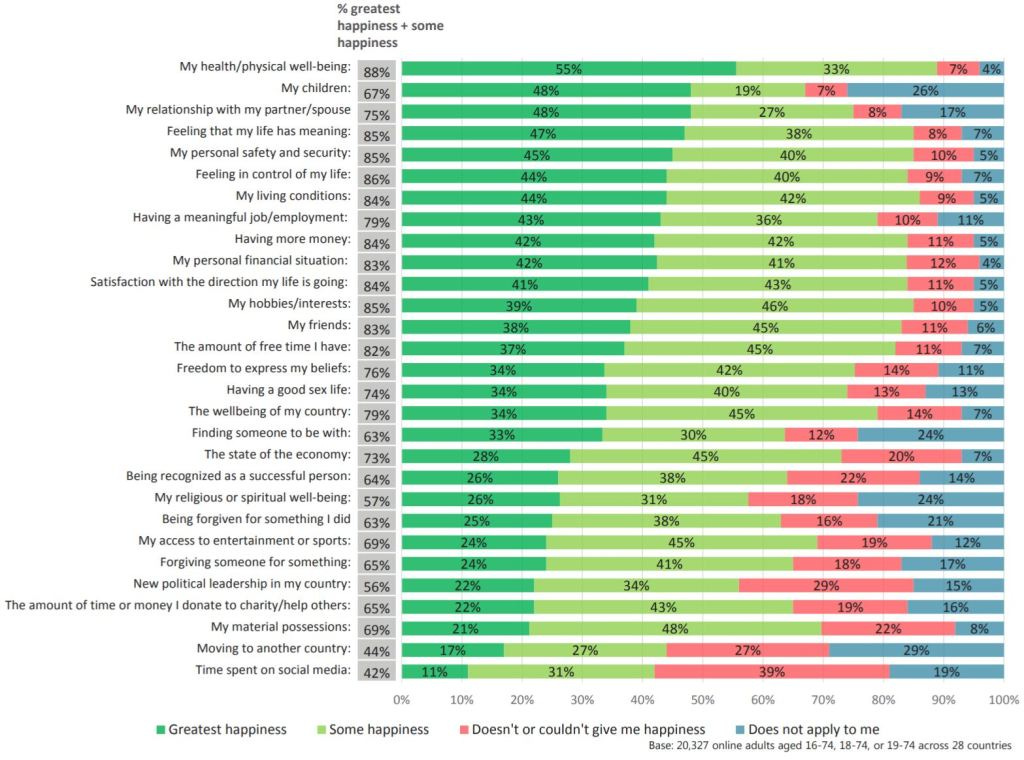One Question to Improve Your Money Habits
Goodbye, dear reader.
Scientists have announced a previously undetected asteroid is on a collision course with Earth. It will strike within minutes and wipe out all life on the planet.
Take the short time you have left to first hug your loved ones. Then, since you’re a person who understands the importance of good money habits, kindly write a brief note with the single best piece of financial advice for the next “intelligent” lifeforms that eventually take over.
What will you say?
What can you write that has the most amount of information in the fewest words?
Once you’re done, memorize the message. Because it can help you improve your own money habits.
This is the story of how.
During a lecture for undergraduate students at the California Institute of Technology, the charismatic Nobel prize-winning physicist Richard Feynman posed this question:
If, in some cataclysm, all of scientific knowledge were to be destroyed, and only one sentence passed on to the next generations of creatures, what statement would contain the most information in the fewest words?
What was the purpose of this question?
For one, this was in 1961 at the height of the Cold War, when duck-and-cover drills in case of a nuclear attack were the norm.
Mainly, however, it was the result of Cal Tech assigning Feynman with the task of revitalizing its physics curriculum to attract more students. These became known as The Feynman Lectures on Physics. His mental exercise was meant to help students – both physics and non-physics majors – create a new perspective and meaning of what they learned.
Consider what Feynman said:
I believe it is the atomic hypothesis (or the atomic fact, or whatever you wish to call it) that all things are made of atoms—little particles that move around in perpetual motion, attracting each other when they are a little distance apart, but repelling upon being squeezed into one another.
In that one sentence, you will see, there is an enormous amount of information about the world, if just a little imagination and thinking are applied.
How everything works and how anything is made – energy, metals, electricity, etc. – can be derived from that one statement.
(I recommend listening to this episode of Radiolab that poses Feynman’s cataclysmic question to historians, writers, scientists, musicians and artists. The various answers are compelling.)
What if you had one statement that guided you through nearly every financial decision in life?
I know this may appear like a frivolous exercise with no practical value in tangible activities like, say, investing or saving money. But it is a useful tool for developing and fortifying good money habits, which lead to successful financial outcomes.
You are creating a mental reminder. A reminder is an essential part of the habit-forming process, as it initiates the desired behavior, especially during times of stress.
Think of it as your own financial mantra. Don’t believe in the utility of a mantra? Well, they’re proven to help some of the most successful humans on the planet achieve lofty goals.
Value of mantras
Lots of professional athletes use mantras and positive self-talk.
Quarterback Russell Wilson reportedly repeated to himself, “Why not us?”, during the Seattle Seahawks Super Bowl season in 2014. Whenever things become difficult, ultra-endurance athlete Rich Roll reminds himself that “Mood follows action.” And Hall of Fame coach Phil Jackson emphasized this to his players and himself: “Create the best possible conditions for success, then let go of the outcome.”
An analysis of dozens of studies published in the Perspectives on Psychological Science journal found that positive self-talk effectively improved athletic performance.
And the benefits are not limited to sports. For example, one study showed that self-encouragement reduces public speaking anxiety. Former Disney CEO Robert Iger attributed a major part of his success to this five-word mantra: “The relentless pursuit of perfection.”
A phrase, adage, aphorism, maxim, motto, mantra, or whatever you want to call it, can help you develop the necessary resiliency to pursue your long-term financial goals.
The best piece of financial wisdom
So, what is one piece of financial wisdom you live by and would want to pass on to Earth’s future overlords once their financial system is up and running?
If you devise an answer from scratch based on your own experience, then you will probably come at it from one of two angles.
One is negative, as in expressing a major regret. Your statement serves as a warning about what to avoid. For yourself, it is a reminder to never make the same mistake, and/or a reminder to work toward recovering from said mistake.
According to a Bankrate survey, Americans say these are their top financial regrets:
Any look familiar?
The positive option is to express what makes life happy. Your answer could provide inspiration for making life meaningful.
In the 2019 Ipsos Global Happiness Study, people surveyed around the world said the greatest source of happiness is their health and physical well-being.
Perhaps, something else makes you happy.
Regardless, life is complex. Money is complex. It is hard to encapsulate everything into one statement. Here is what some notable people mentioned was their best piece of financial advice:
“Marry the right person. I’m serious about that. It will make more difference in your life. It will change your aspirations, all kinds of things.” –Warren Buffett
“The only true job security is a superior skill set.” –Tim Ferriss
“Not having a financial plan is a plan — just a really bad one!” –Alexa von Tobel
“The first step to getting rich requires discipline. If you really want to be rich, you need to find the discipline—can you?” –Mark Cuban
“My habits protect my life, but they would assassinate you.” –Mark Twain… on the dangers of trying to emulate the habits of someone else.
My financial wisdom for future generations... and creatures
If I am going to pose the question, it is only fair that I also answer it.
This was hard. First, I wanted to in some way encourage charity. Something along the lines that true success and wealth will come from helping others. But the more I thought about it, the more I realized a somewhat inconvenient truth about money is that to help others, you also have to help yourself. Someone must accumulate the money.
Therefore, I thought about the one thing that influences everything: time.
So, here is my answer: Patience is a superpower.
Sure, it sounds like something you’d find printed in a fortune cookie or on workplace poster featuring a cat.
Yet, I think it is a motivational message that encompasses every aspect of financial success -- in less than five words. It relates to letting your investments compound rather than trying to bet your way to wealth. It relates to spending money mindfully instead of impulsively buying stuff. It relates to giving yourself the space to find out what life you want to lead rather than chase the life of someone else. It relates to overcoming big challenges for yourself or for your community one step at a time.
I believe these are things you are unlikely to regret when the world is about to end.
So, what is your one sentence?






